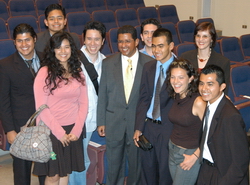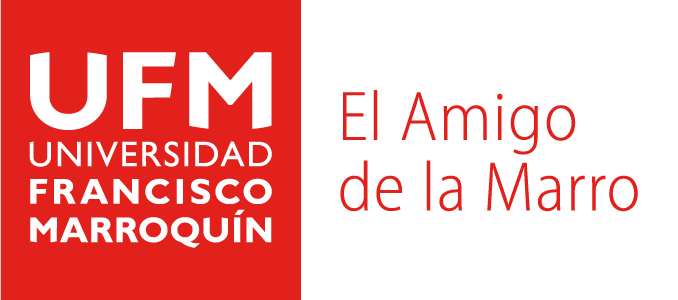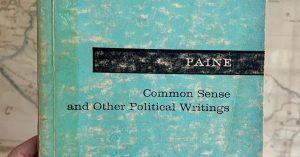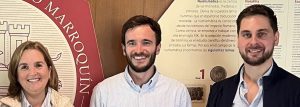 |
| Francisco Flores, second from left to right, with a group of UFM students |
Closing the IV Interuniversitary Seminar on Economic Politics, organized by the Public Decisions Analysis Center of the Francisco Marroquín University, El Salvador´s ex-president, Francisco Flores, gave a lecture titled Political Reforms and Freedom: El Salvador´s success, last March 23rd 2006, at the UFM´s Juan Bautista Gutiérrez Auditorium.
During his presentation, Flores referred to the political environment in his country during the war and after the war; environment in which the political party Alianza Republicana Nacionalista formed and took him to the presidency and has governed the country during four consecutive periods.
The ex-president told a vivid story of how is that El Salvador has progressed in its road to freedom. He made reference to politics like dolarization, education decentralization, public transport reorganization and the public works system. The conference of the ex-president will be seen here, soon.
Francisco Guillermo Flores Pérez was president of the Republic of El Salvador from 1999 until 2004. He was borne in Santa Ana, on October 17th 1959. Elected at 39 years old, he has been the youngest president of El Salvador and the third president elected by the political party Arena.
Before being president, he served his country as Congressman. He studied sociology at the Hartford University, in Connecticut, and finished Political Science in Amhert College, in Boston. Afterwards he studied history and literature in the Trinity College, Oxford, England, and returned to the USA to study a master degree on philosophy and economic philosophy, first in California, later in Harvard.
The
IV Interuniversity Seminar is focusing in the question: How do public decisions are taken inside the government? Or, said in a different way, How are public politics designed and executed?
The participants at the Seminar were the Francisco Marroquín University, Galileo University, Mesoamerican University, Mariano Gálvez University, Itsmo University, Panamerican University, Rafael Landivar University, Rural University, San Carlos de Guatemala University and Del Valle University.
We could define the term public politics like Clarke Cochran does, who says they are the result of the struggle in the government of who receives what. The public politics have been analyzed from different academic disciplines and approaches; they are interested to political science, economics, sociology, engineering, management, psychology and law.
The Public Choice analysis is a methodology that brings new lights to this line of studies for several reasons. First, it centers the action on the people that take the decisions. It is interested in costs and social benefits of the different public politics. It also explores the impact that institutions, formal and informal rules have. Recommendations and lessons are withdrawn from this analysis that could differ from the preferred by traditional points of view and could contribute to improve the efficacy, quality, efficiency, legitimacy and durability of public policies in democratic regimens.
In past years, the seminary for Economic Politics communicated the principal differences of the public choice analysis: a panoramic vision of this science in its outgrowth. This year, the lectures were focused on the economic analysis of law; the application of this tool to governmental politics, national legislation and political institutions of our incipient democracy.
To the conference of the ex-president assisted the participants of the IV Seminar of Economic Politics, as well as guests and general public.
When concluding the conference, Flores was interviewed by Eduardo Smith, from the newspaper Prensa Libre, and mingled with the audience in a cocktail offered at the UFM´s Liberty Plaza.
More photos,
here.
Recientes
- 1
- 2
- 3
- …
- 1.542
- Siguiente »



